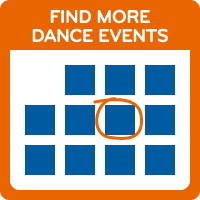Advocacy Alert: What You Need to Know for the November 5 General Election
Wednesday, October 16, 2024
Advocacy Alert: What You Need to Know for the November 5 General Election
What You Need to Know for the November 5 General Election
On Tuesday, November 5, people across the country will be participating in the General Election. This year, New Yorkers have the opportunity to elect our representatives and vote on six ballot proposals, including one that would protect civil and reproductive rights in the New York State Constitution.
What’s your vote plan?
Check if your voter registration status is up to date. The last day to register to vote is Saturday, October 26. If you are registered to vote, there are three ways to vote in New York City:
1. Early voting takes place October 26–November 3. Your early voting poll site and hours may differ. Find your early voting site and hours.
2. You can vote by mail. The last day to request a ballot by mail is October 26. You must postmark your ballot or drop it off in-person at your poll site by November 5.
3. Vote on Election Day, November 5. Polls are open from 6:00 a.m. – 9:00 p.m. Find your poll site.
What’s on the ballot?
What’s on your ballot will depend on where you live. Some of the offices New Yorkers will vote for this November are:
• U.S. President
• Congressional representatives in the House
• U.S. Senators
• State Assembly representatives
• State Senators
• NYC Civil Court
• New York Supreme Court
Make sure to flip your ballot to vote on the six ballot proposals this year. Ballot proposals give voters the right to directly decide on whether a law should be passed.
• Proposal 1 would codify protections based on ethnicity, national origin, age, sex, disability, LGBTQ identity, and reproductive rights in the New York State Constitution.
• Proposal 2 would give more power to the City’s Sanitation Department to regulate city property, street vending, and individual garbage.
• Proposal 3 would add steps to the city lawmaking process and alter city budget-making timelines, giving the Mayor more time to propose a budget and the public less time to comment.
• Proposal 4 would extend the timeline for and increase the Mayor’s power in making public safety laws.
• Proposal 5 would require capital planning reports to evaluate the cost of maintaining city facilities.
• Proposal 6 names the Chief Business Diversity Officer position in the City Charter, gives the Mayor more power over film permits, and changes the city archive process.
Dance/NYC covered the ballot proposals in our August Dance Worker Digest and September Dance Worker Digest.
Why does this matter?
Voting gives you the opportunity to influence the decisions that shape your daily life. The officials we elect will make policy about housing, healthcare, education, and more. Just this year, New York state legislators made policy decisions that impacted arts education as well as arts and culture funding. By voting, you are joining your neighbors, friends, and colleagues in shaping what New York, and what New York City dance, can be.
Additional Resources
For Individuals
• If you encounter any problems while voting, please call the Election Protection Hotline at 1-866-OUR-VOTE.
• For Spanish, call 888-VE-Y-VOTA.
• For Mandarin, Cantonese, Korean, Vietnamese, Bengali, Urdu, Hindu, and Tagalog, call 888-API-VOTE.
• For Arabic, call 844-YALLA-US.
• “I am an Immigrant New Yorker. Can I vote?” If you’re an Immigrant New Yorker, you may be able to vote contingent that you:
• Became a U.S. citizen through naturalization
• Became a U.S. citizen through your U.S. citizen parents
• Are a U.S. citizen born in Puerto Rico or other U.S. territories;
• Are at least 18 years old by the end of this year.
• Are a resident of New York for at least 30 days before Election Day.
• Review this comprehensive guide on the requirements to vote in New York.
• Inclusive democracy ensures that everyone—including unhoused individuals and formerly incarcerated people—has the right to vote. People on parole or probation can register and vote as well.
• Check out Nonprofit Vote’s guide on voting and homelessness
• Review voting rights for people with a felony conviction
• All polling sites must be ADA compliant with access to a Ballot Marking Device for Blind, visually impaired, and disabled voters, as well as a tabulator. Every location must also have a certified inspector who can assist with using a Ballot Marking Device.
• Explore more frequently asked questions on voting in NYC.
For Organizations
• Nonprofit VOTE’s webinar, “Getting a Head Start: Planning Your Voter Outreach for 2024” can help you incorporate voter engagement into your 2024 advocacy plan. Check it out to access best practice tools and templates.
• If you are a 501(c)(3), staying nonpartisan during any election is important to the integrity of your organization. According to the IRS, 501(c)(3) organizations are permitted to conduct certain voter education and engagement activities if they are carried out in a non-partisan manner. This includes hosting public forums, publishing voter education guides, and encouraging people to participate in the electoral process through voter registration and get-out-the-vote drives. Check out Nonprofit VOTE’s comprehensive presentation on how to stay nonpartisan.
• Enact COVID-19 safety measures for your in-person voter registration event. Review National Voter Registration Day’s complete guide on how to make your in-person and public voter registration drives as safe as possible.


